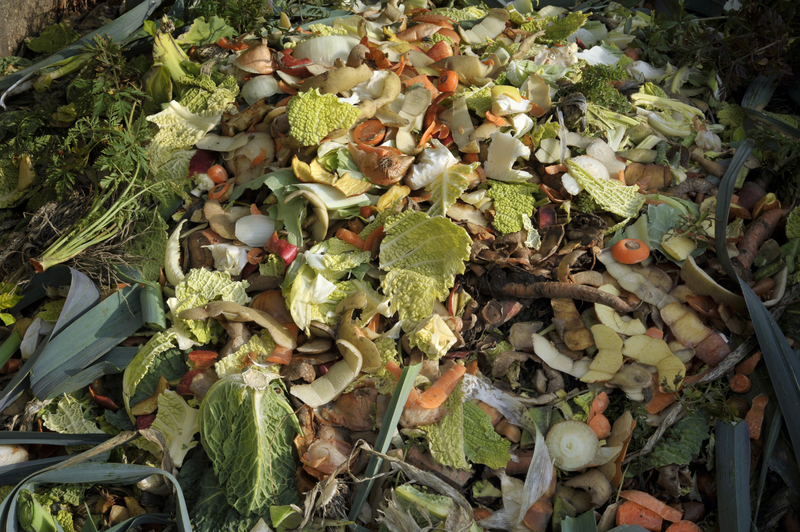How Technology Is Improving Responsible PPE Waste Disposal
The surge in the use of personal protective equipment (PPE) over the past few years has presented new environmental and public health challenges. Ensuring the safety of frontline workers and everyday citizens is critical, yet the mounting disposable masks, gloves, suits, and face shields generate tons of waste daily. As the world continues to prioritize safety, the question arises: How do we responsibly manage the increasing mountain of PPE waste? Technology is at the heart of smarter, more responsible PPE waste disposal solutions, paving the way for a cleaner, safer, and more sustainable future.
Why Responsible PPE Waste Disposal Matters
The critical role of PPE in preventing disease and contamination cannot be understated, but improper disposal leads to unintentional consequences:
- Environmental harm: Non-biodegradable plastics from masks and gloves often end up in oceans, rivers, and landfills, polluting ecosystems and harming wildlife.
- Health risks: Used PPE can carry pathogens, putting waste handlers and the public at risk if not correctly discarded.
- Waste management overload: Traditional waste management systems struggle to keep up, especially during surges in PPE use.

The Challenges with Traditional PPE Waste Management
Conventional methods for handling PPE waste, such as incineration or landfilling, are fraught with drawbacks:
- Air pollution from incinerators releases toxins and greenhouse gases.
- Plastic accumulation in dumps takes centuries to degrade.
- Manual processing increases the risk of cross-contamination and injuries for waste workers.
Innovative Technologies Transforming PPE Waste Disposal
Modern technology is reshaping the landscape of responsible PPE waste disposal. Here are some of the most promising solutions making a difference:
1. Automated PPE Collection Systems
Smart PPE waste bins powered by the Internet of Things (IoT) are being rolled out in hospitals, airports, and public spaces. These intelligent receptacles feature:
- Sensors to detect bin fill-levels and optimize collection schedules, reducing overflows and inefficiency.
- Contactless operation to minimize disease transmission.
- Automated sorting to distinguish between general, PPE, and hazardous waste.
2. Advanced Tracking and Data Analytics
Robust tracking systems use technologies such as RFID tags, barcodes, and GPS to monitor PPE waste from its source to its final disposal site. With these tools, waste managers can:
- Identify patterns in PPE waste generation.
- Pinpoint potential risks or inefficiencies in the collection and disposal process.
- Ensure regulatory compliance and provide transparent reporting.
3. Robotics and AI in PPE Waste Sorting
Artificial Intelligence (AI) and robotics are transforming how we handle infectious waste. Automated robots can:
- Sort contaminated PPE from other waste streams using visual recognition technology.
- Reduce the need for human contact, lowering exposure and improving safety.
- Increase sorting efficiency and accuracy, allowing more PPE to be allocated for recycling or safe destruction.
4. Sterilization Technologies
Before PPE waste can be recycled or safely destroyed, it must be thoroughly disinfected. Innovative sterilization methods include:
- UV-C light chambers that rapidly neutralize viruses and bacteria.
- Ozone-based disinfection, which is effective and chemical-free.
- Autoclave systems that use high-pressure steam for large-scale sterilization.
5. Mechanical and Chemical Recycling
Recycling PPE waste is one of the most sustainable options, but contaminated materials present serious challenges. However, advances in recycling technology are breaking new ground:
- Mechanical shredders and sorters prepare PPE for material recovery while minimizing contaminants.
- Chemical recycling processes break down plastics from masks and gloves into raw materials for new products.
- Some systems even convert PPE waste into fuel through pyrolysis.
6. Mobile Collection and On-Site Treatment Units
For remote or high-risk locations, mobile waste treatment units offer flexible, rapid PPE waste handling:
- Self-contained trailers equipped with sterilization, shredding, and compacting technologies.
- On-site disinfection and volume reduction, minimizing transport risks.
- Real-time monitoring and reporting for regulatory compliance.
The Role of Policy, Innovation, and Public Awareness
Effective PPE waste management technology is not just about hardware and software. Clear regulations, industry standards, and public education are also essential for promoting responsible disposal:
- Government incentives encourage the adoption of green PPE disposal solutions.
- Manufacturers are designing PPE from more recyclable materials, supporting the waste management chain.
- Awareness campaigns educate workers and the general public on proper disposal practices and the importance of using designated PPE bins.
By marrying technology with strong policy and cultural shifts, the future of responsible PPE waste disposal looks much brighter.
Notable Real-World Examples of Technological Progress
Across the globe, diverse organizations are putting these advancements into practice. Noteworthy examples include:
- Singapore's National Environment Agency has embraced smart bins at hospitals and airports with sensors that optimize waste collection while tracking PPE waste generation patterns.
- Terracycle, a private waste management company, has established special programs for collecting and recycling masks, gloves, and face shields, using chemical recycling to produce plastic pellets for new products.
- Spanish Startups are developing AI-driven robots to sort and process PPE waste, reducing contamination risks and increasing efficiency.
- U.S. hospitals have installed UV-C sterilization units to disinfect used PPE, enabling safe recycling or reduction in hazardous waste volumes.
Benefits of Technological Innovation in PPE Waste Disposal
Leveraging technology for eco-friendly PPE waste disposal brings advantages that extend far beyond environmental protection:
- Health and safety - Reduces exposure for waste handlers and the public.
- Operational efficiency - Optimizes collection, sorting, and processing, saving money and time.
- Regulatory compliance - Streamlines record-keeping and reporting through data analytics.
- Resource recovery - Facilitates recycling and reuse of rare materials.
- Social responsibility - Demonstrates commitment to public well-being and environmental stewardship.
The Future: Building a Circular Economy for PPE Waste
The ultimate vision for responsible PPE waste management encompasses a circular economy model, where materials from discarded PPE are fully reintegrated into the manufacturing supply chain. This can be achieved through:
- Designing PPE for recyclability from the outset.
- Pairing widespread collection infrastructure with robust recycling technologies.
- Establishing public-private partnerships to align incentives and scale up best practices globally.
Technological advancements can turn PPE waste from an environmental threat into a valuable resource, closing the loop for a safer world.

Best Practices for Organizations - How to Implement Technology for Responsible PPE Waste Disposal
If you're looking to improve your organization's PPE waste management strategy:
- Assess your current practices and identify pain points where technology could help--for instance, overflowing bins or staff safety risks.
- Invest in smart collection bins and ensure proper labeling for PPE waste streams.
- Leverage digital waste tracking tools for real-time monitoring, reporting, and optimization.
- Partner with certified waste management companies using advanced sterilization and recycling processes.
- Train employees to use new disposal systems and keep them informed on the importance of responsible PPE handling.
*By integrating advanced technology and continuous education, your organization can set a benchmark in sustainable PPE waste disposal.*
Conclusion: Harnessing Technology for Safer and Greener PPE Waste Disposal
Responsible PPE waste disposal is not just about cleanliness--it's an urgent matter of public health and environmental protection. With innovative technology now transforming everything from collection and sterilization to recycling and data management, there's never been a better time to embrace smarter solutions.
Adoption of these trends will deliver:
- Lower risk of disease transmission and reduced environmental footprint.
- Greater compliance with safety and environmental regulations.
- Opportunities for resource recovery and circular economy initiatives.
- Enhanced reputation as a responsible, future-ready organization.
*By prioritizing innovation and accountability, we can ensure that the very products protecting us today do not harm the world of tomorrow.* Invest in responsible PPE waste disposal technology now--for a safer, cleaner, and more sustainable future for all.